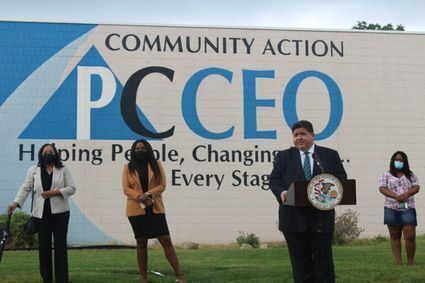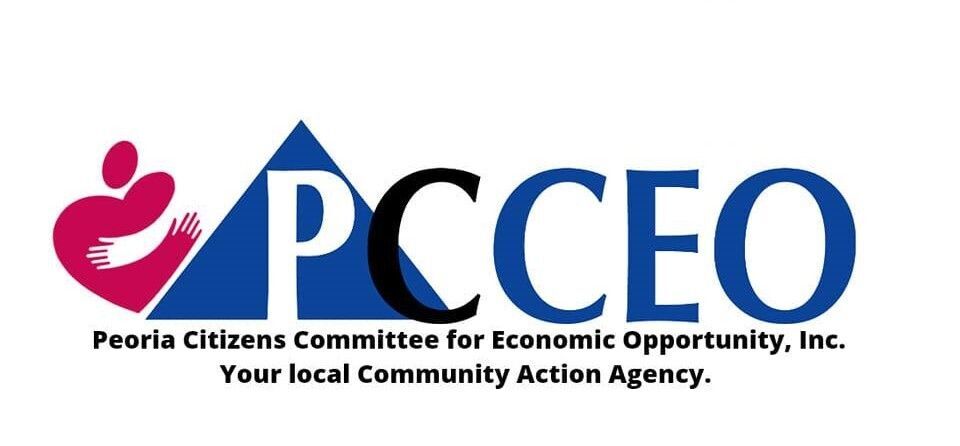
For more than 50 years, The Peoria Citizens Committee for Economic Opportunity (PCCEO) has been serving residents of Peoria County.
We utilize a wide variety of community programs, initiatives and services to help low-income families and individuals in Peoria County overcome life obstacles and move toward self-sufficiency, all while empowering them through life-long learning and improved quality of life.
PCCEO stands behind the promise of Community Action:
“Community Action changes people’s lives, embodies the spirit of hope, improves communities and makes America a better place to live. We care about the entire community and we are dedicated to helping people help themselves and each other.”
Mission
The Economic Opportunity Act of 1964 created the federal Office of Economic Opportunity. In February 1966, the Peoria Citizens Committee for Economic Opportunity, Inc. (PCCEO) became the official agency authorized by the federal government to administer and operate “Community Action Programs” (CAPs) in Peoria.
History
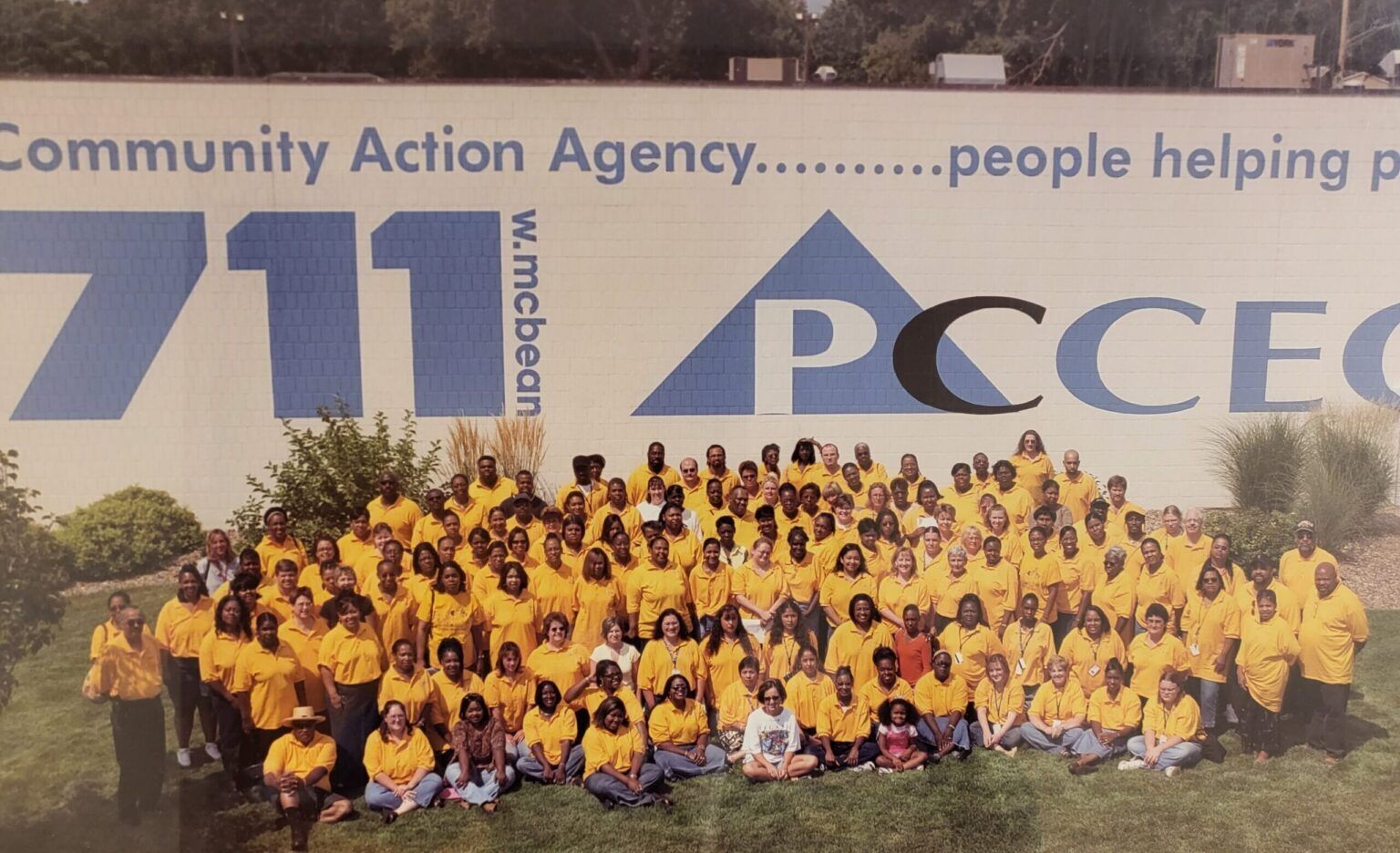
1966
The first two programs to be operated by PCCEO were the 1966 “Summer Head Start” project and the “Legal Services Program”, which was delegated to the Peoria Legal Aid Society. The honorable Joe Billy McDade, currently the Chief U.S. District Judge in the Central District of Illinois, was the director of that program.
In 1967, PCCEO received its first “research and program development” grant to identify the Peoria areas with the highest incidence of poverty-based on the 1960 Census Data. This grant marked the beginning of the Peoria Community Action Agency (CAA) experience. The original staff consisted of a Director, Assistant Director, Secretary, and 12 Outreach Workers.
This original staff conducted a survey utilizing a “Life Situation” questionnaire that gathered information on needs and concerns from over 2,500 homes, touching over 10,000 individuals within the City of Peoria. Bradley University assisted in the research of the data and later recorded the findings on computer punch cards.
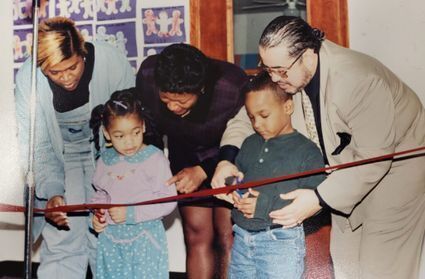
1968
During the same period, a $23,000 “Special Summer Impact” grant was received to define social problems that perennially faced the youth of low income and disadvantaged families, and to develop programs to address those issues. A grant was also received that same summer to establish and operate a “Neighborhood Center Program” (NCP). At first this program was delegated to the “South Side Improvement Association” under the direction of the late Mr. Harry Sephus. However, because of the complexity of federal reporting requirements and general day-to-day administration, PCCEO began to directly administer this program in 1968.
The first executive director was Will Davie, and Mr. Harry Sephus operated the first “neighborhood center,” which was located at Hurlburt and Sheridan Street (then Spencer Road). The Community Action Agency (CAA) was first housed in the old and abandoned City Planning building located between First and Second Street, about where Village Green’s southeast corner ends.
In 1968, PCCEO began directly developing and administering programs by which people could be trained and established programs designed to help people to help themselves, rather than just giving handouts or resolving problems on a short-term basis. PCCEO thus began its development as “the Welfare Alternative!”
As the organization grew and developed, it:
Received a grant to operate a special housing program
Received a grant to establish a planning and development component
Changed and altered its basic policies and program concerns to meet the changing needs of the residents of Census Tracts 1 through 15.
In retrospect, outreach and identifying poverty-related problems and causes was the key effort in 1968. Head Start was only a summer program and administered by Sister Cor Marie. The Neighborhood Center (the late Joe Brown was the Center Director) was the largest program effort of PCCEO. Some seven years and five executive directors later PCCEO was beginning to stabilize. Michael E. Banks was appointed Executive Director in 1973 (working with a core team that consisted of Janet Arbuckle, Executive Secretary; Reginald V. McDuffie serving as both Administrative Assistant and Chief Fiscal Officer; and Arthur V. Rose, Community Organizer), steered the organization in such a manner that within five years PCCEO was providing:
- Year ’round Head Start services
- Day Care services
- A Kindergarten
- Before and after school latch-key programming
- Alcohol Rehabilitation Services
- A Senior Drop In Center
- Neighborhood Outreach Centers
- Information and Referral Services
- A Food Service Operation
- Radio and Television Programming
- Weatherization and Housing Rehabilitation Services
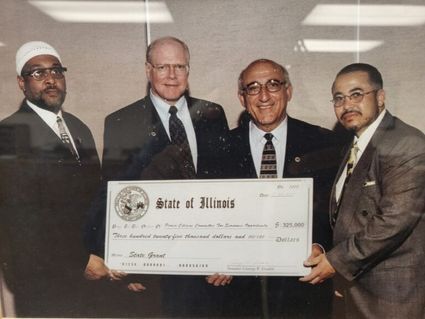
1993
After Mr. Banks’ resignation in December 1992, McFarland A. Bragg II was appointed Executive Director/CEO in March 1993. Under his stewardship, with the assistance of an outstanding Board of Directors and an excellent management and administrative team, PCCEO has:
- Maintained the majority of the programs and services referenced above
- Expanded its early childhood programming to include services to pregnant women and families with children to age three (Early Head Start)
- Increased its advocacy efforts through involvement with the African-American Leadership Alliance, and service on the Central Illinois Workforce Network Board of Directors and the Peoria Chamber of Commerce Board of Directors
- Contributed to neighborhood stabilization over a 12 year period (from October 1997 to December 2009) by providing affordable home ownership opportunities and constructing 170 single family homes in Peoria’s South Valley,
- Increased its community/economic development focus,
- Increased its unrestricted resource base
- Increased the overall operating budget from $5.3 to $17 million dollars
